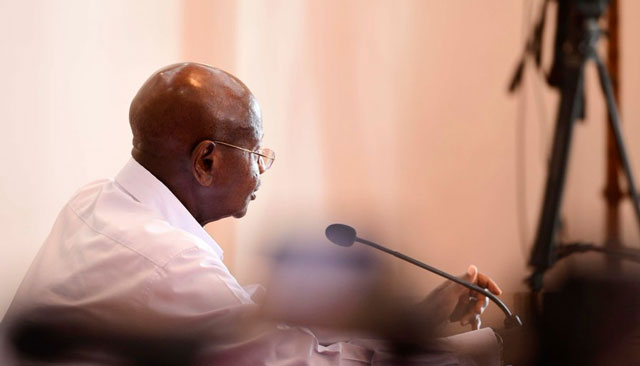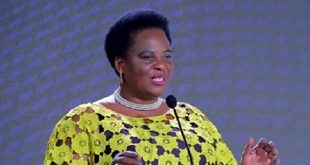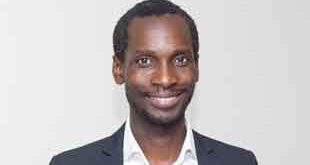
Why Kampala abstained from condemning Russia at last year’s crucial UN general assembly vote
THE LAST WORD | Andrew M. Mwenda | On June 27, NBS journalist Canary Mugume had a screening of his documentary on the war in Ukraine at the residence of the Swedish ambassador in Kampala. Canary had been to Ukraine in March of this year to report on that war. The documentary is a painful demonstration of the tragedy America’s proxy war with Russia has brought onto the people of Ukraine. After the screening, there was a panel discussion during which Canary asked me a question I did not have time to answer: why did Uganda abstain from condemning Russia at the UN general assembly vote last year.
The Americans and Europeans want to shape the narrative on this war as an “unprovoked act of aggression” by Russia against a neighbour. They use the tragic images of this war in a propaganda campaign to demonise and criminalise Russia and its president, Vladimir Putin. This is understandable. However, they also demand and insist that everyone accepts their view or else. To disagree with their narrative is to have been paid by Putin. This is antidemocratic. This article seeks to defend liberal traditions of open debate of diverse opinions on an important subject.
My view is that the war in Ukraine is a proxy war between America and her Western allies to weaken Russia. U.S. strategic considerations can be found in a 1997 book by Zbigniew Brzezinski, a former national security advisor to U.S. president Jimmy Carter. Titled The Grand Chessboard; American Primacy and its Geostrategic Imperative, Brzezinski’s book argues that 75% of the world’s people live in Eurasia and that most of the world’s physical wealth lies there. Eurasia accounts for 60% of global GDP and about 70% of the world’s energy resources. He argues that the aim of U.S. policy should be never to cede control of these resources. He explicitly states that a strong Russia will seek to challenge American primacy in this region. Therefore U.S. policy should seek to weaken Russia.
Brzezinski goes on to explain the role of Ukraine as a “pivot state.” If it remains under Moscow’s sphere of influence, it would allow Russia to project power into the rest of Eurasia. This is because of the seaport at Sevastopol in Crimea which is Russia’s only fresh water seaport. Ukraine is also a geographic defensive buffer for Russia, an important psychological factor in a country that has thrice been invaded from the west via Ukraine in the last 200 years. If you want to weaken Russia, provoke it by seeking to take Ukraine from its orbit. That way, you can draw it into a long and costly occupation of Ukraine. This is called a “bait and bleed” strategy.
This brings me to Uganda’s attitude. First, I have not discussed Uganda’s decision to abstain with anyone at the Ministry of foreign affairs, or in government, including President Yoweri Museveni. Neither have I read any official document or policy brief about our position on this war. I have, on several occasions, discussed the war with Gen. Muhoozi Keinerugaba. However, our discussions have been entirely on the strategic and tactical issues in the conduct of the military campaign and not on Uganda’s policy towards this conflict. This article is, therefore, my speculations on the likely considerations of government, most especially Museveni, in abstaining at that crucial UN vote.
I have spent my adult life reading Museveni’s speeches and writings. I glean from his various statements what must have guided Uganda’s policy toward this conflict. I believe that the critical factor in Uganda’s decision on this matter is not the Ministry of foreign affairs or cabinet. It is Museveni. This article is therefore not an authoritative source of Uganda’s policy towards the war in Ukraine but my personal reflections on Museveni’s attitude.
The fundamental aim of Uganda’s foreign policy is to ensure the realisation of our country’s national objectives. The primary national objective of the government of Uganda is to ensure the sovereignty and territorial integrity of this country. This is what makes it possible for our government to pursue other broader goals such as to ensure that our citizens live in a politically stable, economically prosperous and socially harmonious environment. From Museveni’s speeches and writings, one can say that our foreign policy is guided by three interrelated pillars: pan-Africanism, nonalignment and world peace. These pillars make it possible for our people to enjoy freedom and autonomy to shape their destiny.
In Museveni’s mind, pan-Africanism has two aspects. First is regional economic integration, leading to a political federation of the different regions of Africa – EAC, ECOWAS, SADC, etc. He believes that our nations (as currently constituted) are too small to form viable markets that can ensure the economic prosperity of our people. The second aspect of pan-Africanism is what Museveni calls “strategic security.” This can be achieved by Africa developing a common continental defense policy and with it, a joint high command of the militaries of the different regional political federations. Without these-twin pan-African goals, African nations will remain weak pawns of the great powers on the international chessboard.
The second pillar of Uganda’s foreign policy is nonalignment. Indeed, Uganda will host the nonaligned conference in January of next year. This policy stresses that for our poor countries to survive and thrive in the global environment, they should resist being dragged into the conflicts between the great powers. Rather than act as surrogates, supporters or outposts of one side, they should insist on strategic neutrality (nonalignment). This is important because it furnishes us with the possibility of acting as a bridge between the two conflicting parties. Taking sides is wrought with dangers as Ukraine’s desire to join NATO and becoming a Western outpost on Russia’s borders has proven. Today, it’s unable to ensure her territorial integrity, the physical security and economic prosperity.
The third pillar of our foreign policy is world peace. War is destructive. Once its machines are set in motion, it becomes ever more difficult to control their devastating effects on civilian populations. Uganda and Africa cannot thrive in a global environment characterised by war; especially among the great powers. Our foreign policy is therefore to ensure the diplomatic resolution of global conflicts. In abstaining from condemning Russia, Uganda allowed herself strategic neutrality to act as a facilitator (in concert with others) of a diplomatic solution to this conflict. No wonder when the African Union made a decision to send a delegation of Africa leaders to both Moscow and Kiev, Museveni was one of those selected.
******

amwenda@independent.co.ug
 The Independent Uganda: You get the Truth we Pay the Price
The Independent Uganda: You get the Truth we Pay the Price



I am surprised you are one of the people who believe that African leaders, rulers and despots like the Ugandan supreme leader can broker a meaningful peace talks between a which according to you is America’s proxy war with Russia. And you are upbeat because your President is among a group of African fools!
Remember that you are one of the most vocal cheers of your puppet’s hopeless military adventures in one of America’s proxy wars in somalia! And fool no one, your cult’s strategic considerations abstaining at the UN’s special security council sitting to condemn Russian barbarian invasion of a sovereign Ukrainian state is because of sijui “nonalignment”! Garbage!! It’s rather about military and money considerations from Russia and china since the two super powers are on one hand against America and some western European countries!
Must you be so crudely disrespectful to gentlemen who were made custodians of their respective nations? Fools? May you go with the setting sun never to return alive in the nations that are led by ‘fools’…
In response to you owelugosi…. that remains your personal biased opinion which you present as a fact.
1.When Ugandans speak you may think that they have some sophisticated high breed of people who are on some kind of intellectual reserve that once unleashed then Ug will be a 1st world nation instantly.
2.President M7 is the finest definition of a Great Statesman;he has made Political,Social and Economic Inroads in all nations that matter on this earth and he is never fond of letting others down.
3.Putin is now standing on shaky ground he had overestimated himself;i warned you that USA’s silence was so loud and unusual can you imagine the rebels were already in Moscow and Putin could not notice their presence?Gone are the days when expansion of territories was just a walk in the park.Its unfortunate that lives have to lost because Putin wants to prove a point that he is in control.
4.I dread the day when the security forces in the whole world will say enough;we also want to sit in Air conditioned offices and also wear neck ties and nice suits.
I believe nonalignment is the best position for Uganda on the issue of war in Ukraine. I am saddened by some responses to the article. Some of the responses seem not to comprehend well the reason why Russia invaded Ukraine on one hand and why NATO got involved in the war even though Ukraine is not a member of NATO. Therefore, I strongly believe, Uganda should neither support Russia nor NATO in this war that has shattered lives for many including impacting on many economies in many countries.
Tusubira’s response is not helpful because it seems there is a complete ignorance of the causes of the current chaos in Ukraine.